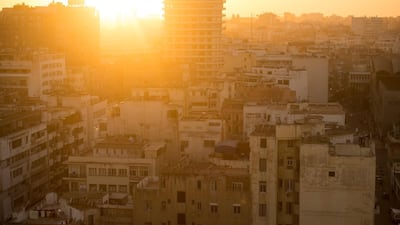Moroccan citizens and businesses are scrambling to adjust to the government's decision to remain on Daylight Saving Time, or summer time, permanently.
The move was announced on Friday, just two days before clocks were to be moved back one hour in the annual scheduled time change.
As Draft Decree 2.18.855 came into effect on Sunday, many Moroccans awoke to phones that had automatically switched back to GMT, and even Google had yet to update to the correct time in Morocco by Monday.
Mohamed Ben Abdelkader, Minister Delegate for Administration Reform and Civil Service, announced that the decision was due to a study that showed that “the adoption of a double-time system has created a sort of confusion for citizens”. The study took into account the effects of repeated switching between GMT and GMT+1 on health, economy, energy and commerce.
But many have questioned the official line, wondering why there was no public announcement of such a study, and why the policy was put into effect so suddenly.
Lamia Kerzazi, a marketing and strategy professor in Rabat, believes that “the problem is the way in which the decision was taken, which calls into question its legitimacy and efficiency. It was made at the last minute, in haste and after having announced a return to [winter hours] a few days prior”.
On social media it has attracted the ire of Moroccans who have shared memes, screenshots of Google getting the time wrong, and criticism that mobile phones no longer offer the correct time zone for Morocco.
Others speculated that the single time policy would not apply in Ramadan, when clocks in the kingdom are turned back to bring sunset, and iftar, forward by an hour.
The last-minute announcement left a number of businesses scrambling. National airline Royal Air Maroc announced that all flights departing after 3am on Sunday would be delayed by one hour, and internet providers distanced themselves from the failure of phones to update the time correctly.
Some Moroccans have come out in support of the move, hoping that the extra hour of evening daylight might reduce the use of electricity.
But these are benefits that do not apply to the masses. The agricultural sector generates about 40 per cent of employment in Morocco, but the new winter hours have raised concerns that farmers will be forced to work in darkness in the early morning.
This week the Ministry of Education announced that school hours will be amended to reflect the time change. Under the new timetable, schools, institutes and universities will open at 9am and close at 6pm, which would reduce the traditional two-hour lunch break to a single hour.
Mrs Kerzazi wondered how parents would adapt. “If children start school at 9am and parents start work at 8am, who is going to look after the children in the meantime?” the mother-of-two asked.
Typically, students in Morocco travel home for lunch, which will no longer be an option for many children.
Mrs Kerzazi pointed out that most public establishments do not have cafeterias. “One hour isn’t enough to go home and have lunch,” she said.
Some critics have pointed to the eurocentricity of the move, noting that the time change aligns Morocco with European neighbours. “Morocco is increasingly targeting a South-South economic orientation. Have we asked ourselves what the consequences will be with customers located further south?” Mrs Kerzazi said.
______________
Read more:
No more spring forward or fall back for the EU
North-east India wants to reset the clock
______________
Amid the practical and economic concerns, there has been some laughter too.
Local comedian Oussama Ramzi criticised the permanent adoption of Daylight Saving Time in a skit that has been viewed more than 400,000 times.
“You wake at 7 to go to work and the sun isn’t up yet. You leave at 6 and the sun is gone.” He jokes. “Now thieves will be working regular shifts [because] by 6pm it’ll be dark, they’ll be working until 8am the next morning.”

